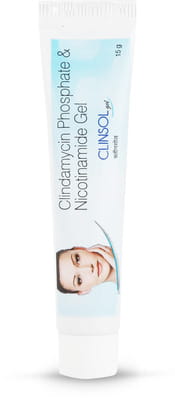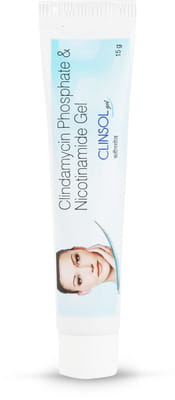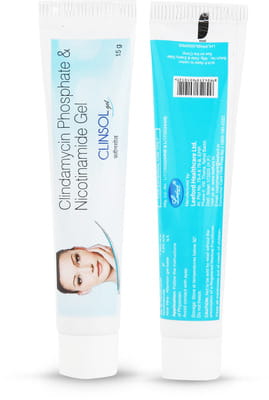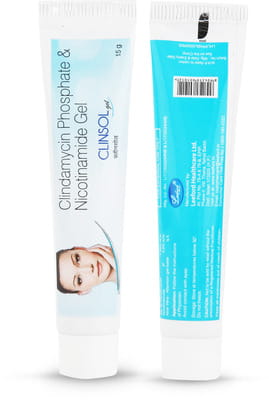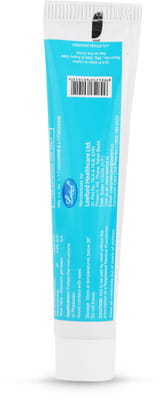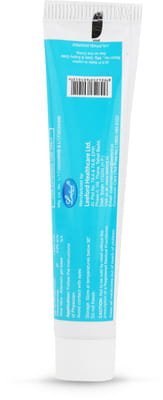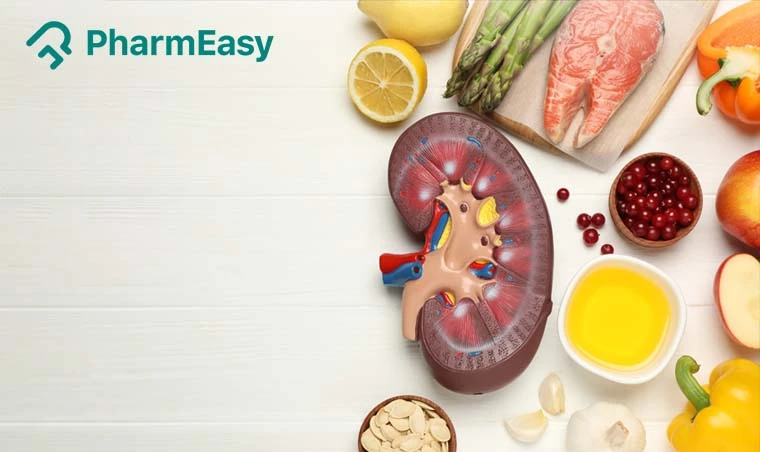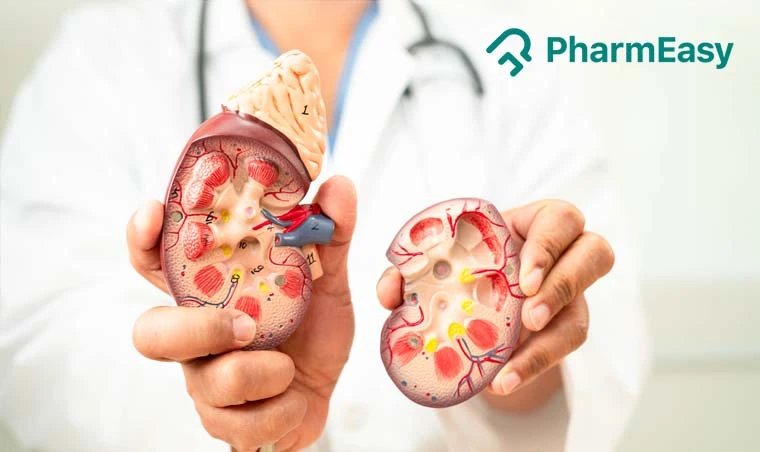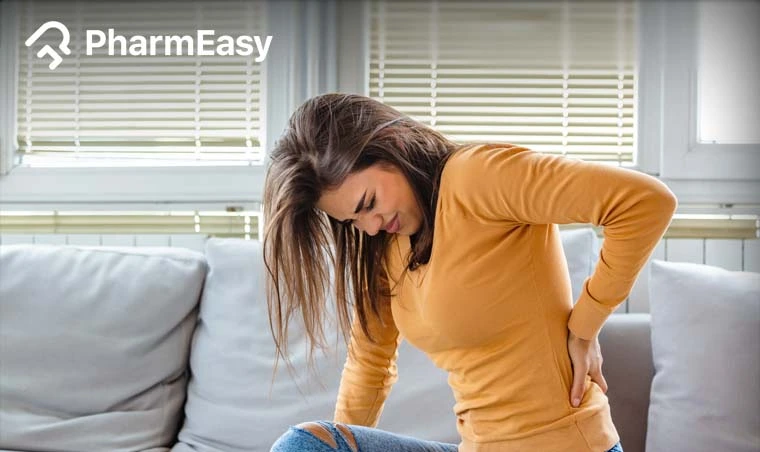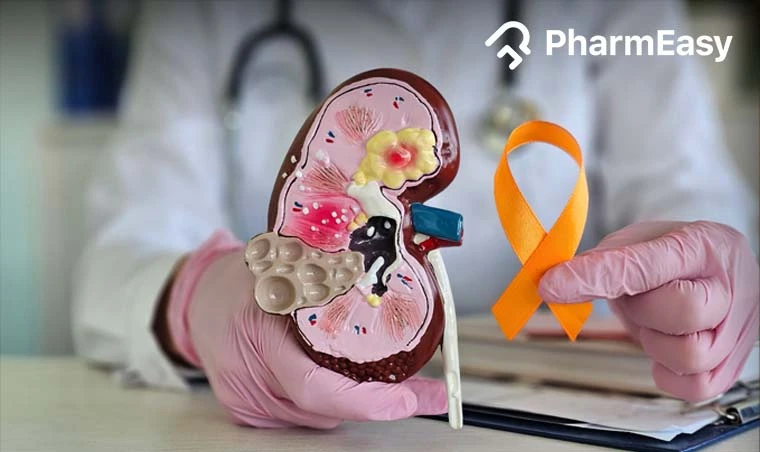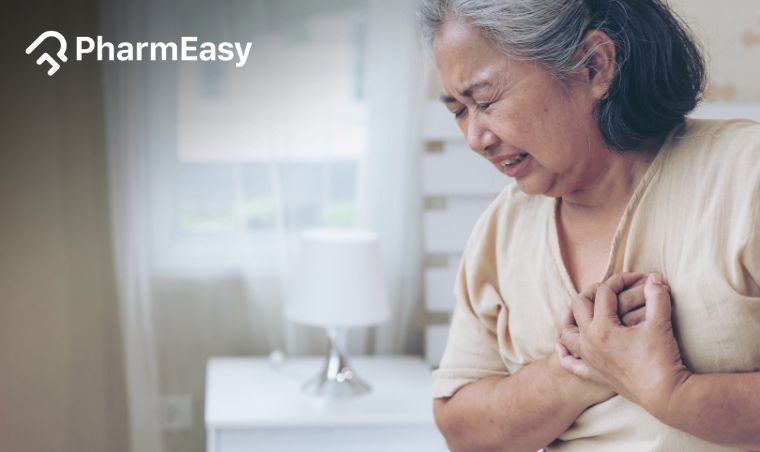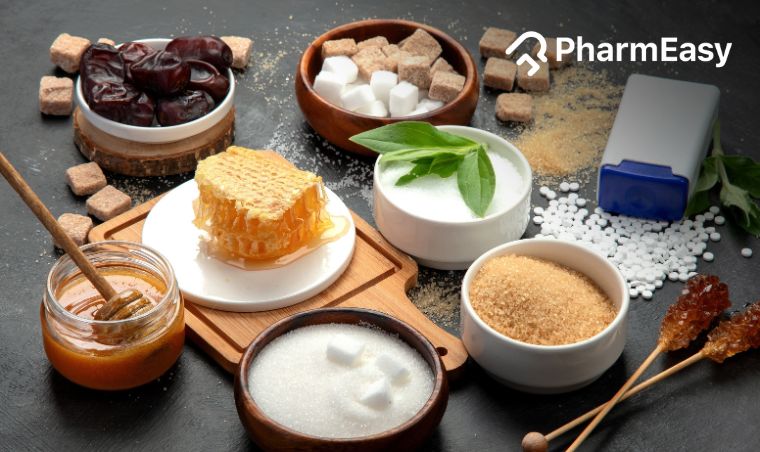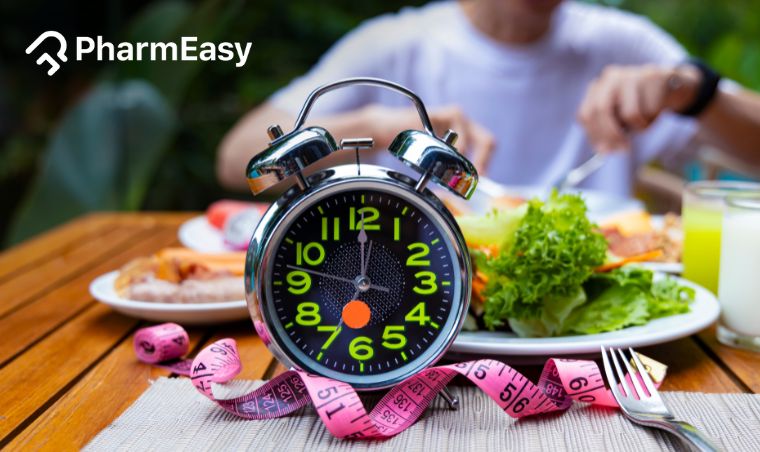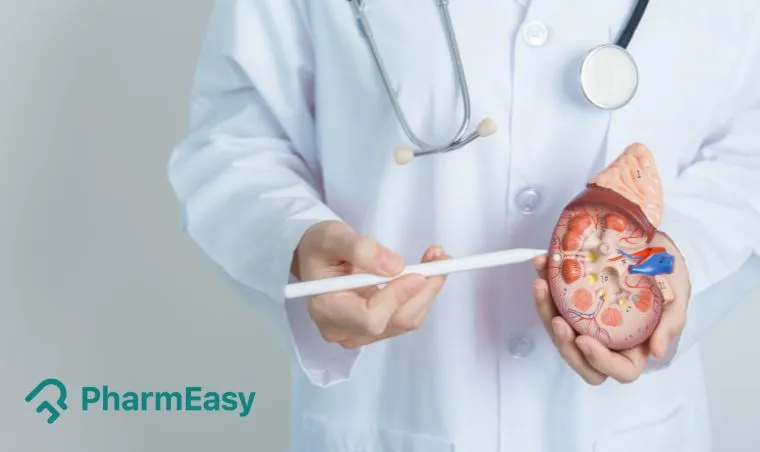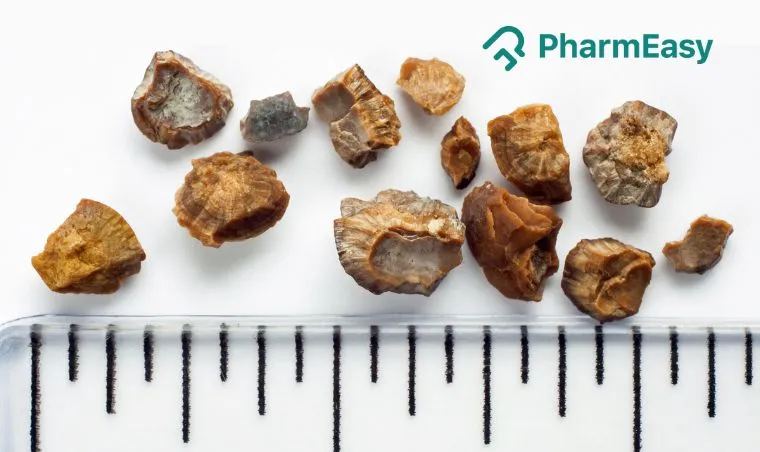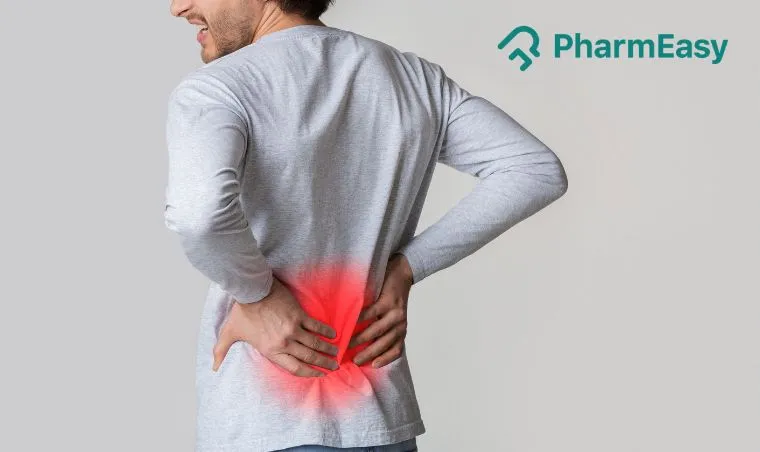Clinsol Gel
Description
Clinsol Gel is used to treat acne by reducing the growth of acne-causing bacteria and helping to fade acne marks. It contains two active ingredients: clindamycin, an antibiotic, and nicotinamide, a form of vitamin B3 that helps reduce inflammation and redness.
Clindamycin works by stopping the growth of bacteria that cause acne, while nicotinamide soothes irritated skin and promotes healing. Together, they help reduce active pimples and improve the overall appearance of your skin.
Apply a thin layer of Clinsol Gel to the affected areas as directed by your doctor. Avoid contact with the eyes, nostrils, and mouth. If accidental contact occurs, rinse immediately with water. Always wash your hands before and after applying the gel.
Your skin may become more sensitive to sunlight while using this gel. Use sunscreen during the day and limit direct sun exposure to prevent irritation and sunburn. Common side effects include mild redness, dryness, or peeling, which usually improve with continued use.
Other gels with similar ingredients include Faceclin gel, Glocin gel, Nioclean gel, Acnestar gel and Femcinol A gel. Consult your doctor if your acne does not improve or if you experience any persistent or severe skin irritation.
Product Summary
| Offer Price | ₹51.52 |
| You Save | ₹40.48 (44% on MRP) |
| Contains | Vitamin B3 / Nicotinic Acid / Niacin(4.0 %)+Clindamycin(1.0 %) |
| Uses | Acne, whiteheads, pimples, blackheads |
| Side effects | Skin irritation, itching, burning |
| Therapy | ANTI-ACNE |
Uses
Contraindications
- If you are allergic to clindamycin, nicotinamide or any other ingredient of Clinsol gel.
- If you have a history of inflammatory bowel disease.
- If you have experienced diarrhoea upon antibiotic use.
Side effects
- Skin irritation
- Itching
- Dry skin
- Burning
- Redness
Precautions and Warnings
Pregnancy
Breast Feeding
Driving
Alcohol
Other General Warnings
- You are allergic to any components of this gel or history of allergic skin reactions.
- You are experiencing excessive dryness, irritation and peeling of the skin.
- You had or currently have a condition of inflammation of the colon or antibiotic-associated diarrhoea.
Directions for Use
- Use Clinsol gel as prescribed by your doctor.
- Clean your skin with a mild water-based cleanser before applying this gel.
- Apply gently to the affected area by placing a small amount on your fingertips.
- Avoid touching the tip of the container directly to the infected area of the skin.
- In case your eyes come in contact with this gel, rinse your eyes with clean water immediately.
Storage and disposal
- Store this medicine at room temperature in a cool and dry place.
- Keep out of the reach and sight of children and pets.
Quick Tips
- Clinsol gel is an anti-acne medication. It is a topical preparation used to manage acne, pimples, whiteheads, and blackheads.
- Talk to your doctor if you are allergic to any components of this gel or have a history of allergic skin reactions.
- Do not use this medicine more than the recommended amount or for longer periods than directed.
- Avoid contact with eyes, mouth, nose or mucous membrane.
- Do not use this medicine for other purposes without consulting a doctor.
- Do not use Clinsol gel for a prolonged period. This medicine is not meant for children.
Dosage
Overdose
Missed a Dose
Mode of Action
How Does It Work?
- Clinsol Gel works by the combined action of its two constituents.
- Clindamycin is an antibiotic agent it works by inhibiting the growth and multiplication of acne-causing bacteria.
- Nicotinamide is a natural anti-inflammatory agent; it reduces the swelling and redness associated with acne. It also regulates oil production in the oil glands in your skin and helps in lightening the marks due to pimples, acne and other skin problems....
Interactions
Interactions with other medicines
- Clinsol Gel is meant for topical application on the skin and thus is less likely to interact with other oral medicines. However, it may interact with other topically applied medicines. Discuss with your doctor if you are already on another topical medicine....
- Be cautious if you are taking blood thinners such as warfarin, acenocoumarol and fluindione as components of this medicine may interact with these medicines. Regular monitoring of blood coagulation parameters is recommended....
Interactions with food items
Content Details
Dr. Arpit Verma
MBBS, MD, CCEBDM Diabetology
Dr. Ritu Budania
MBBS, MD (Pharmacology)
Frequently Asked Questions (FAQs)
Q: Can I use Clinsol Gel for children?
Q: Can I use Clinsol gel in viral infections?
Q: Is Clinsol gel good for oily skin?
Q: How to use Clinsol gel on the face?
Q: Does Clinsol gel work on pores?
Q: Is Clinsol gel good for pimples?
Q: Is Clinsol gel good for everyday use?
Q: How do I store Clinsol gel?
Q: Does Clinsol gel work on hives?
Q: How many days should we use Clinsol Gel?
Q: Clinsol gel vs Acnestar gel, are they the same?
Q: Is Clinsol Gel good or bad for acne, oily skin, and pus-filled acne?
Q: Can Clinsol Gel remove dark spots, blemishes, pigmentation, or marks?
Q: Can Clinsol Gel cause allergies or side effects?
Q: Can Clinsol Gel be used for milia?
Q: Can Clinsol Gel be used with Erytop Gel?
Q: Clinsol Gel vs Femnisol Gel, how do they differ?
References
- Dalacin T Topical Lotion or Clindamycin Phosphate Topical Lotion - Summary of Product Characteristics (SmPC) - (emc) [Internet]. Medicines.org.uk. 2025 [cited 18th Nov 2025]
- Freederm Gel - Summary of Product Characteristics (SmPC) - (emc) [Internet]. Medicines.org.uk. 2025 [cited 18th Nov 2025]
- Murphy PB, Bistas KG, Patel P, et al. Clindamycin. [Updated 2024 Feb 28]. In: StatPearls [Internet]. Treasure Island (FL): StatPearls Publishing; 2024 Jan-. 2025 [cited 18th Nov 2025]
- National Center for Biotechnology Information (2024). PubChem Compound Summary for CID 938, Nicotinic acid. 2025 [cited 18th Nov 2025]
Did you find this medicine information helpful?
Please rate your experience
Other Products from this Brand
- CLINSOL ANTI ACNE FACE WASH 70 GM
- CLINSOL ANTI ACNE & OIL SKIN SOAP 75 GM
- CLINSOL PLUS TUBE OF 15GM GEL
- CLINSOL STRIP OF 10 CAPSULES
- CLINSOL OIL CONTROL FACE WASH 70GM
- CLINSOL I 10MG STRIP OF 10 SOFTGEL CAPSULES
- NEO CLINSOL PLUS TUBE OF 15GM GEL
- CLINSOL I 20MG STRIP OF 10 SOFTGEL CAPSULES
- CLINSOL FACE WASH TUBE OF 70 G


